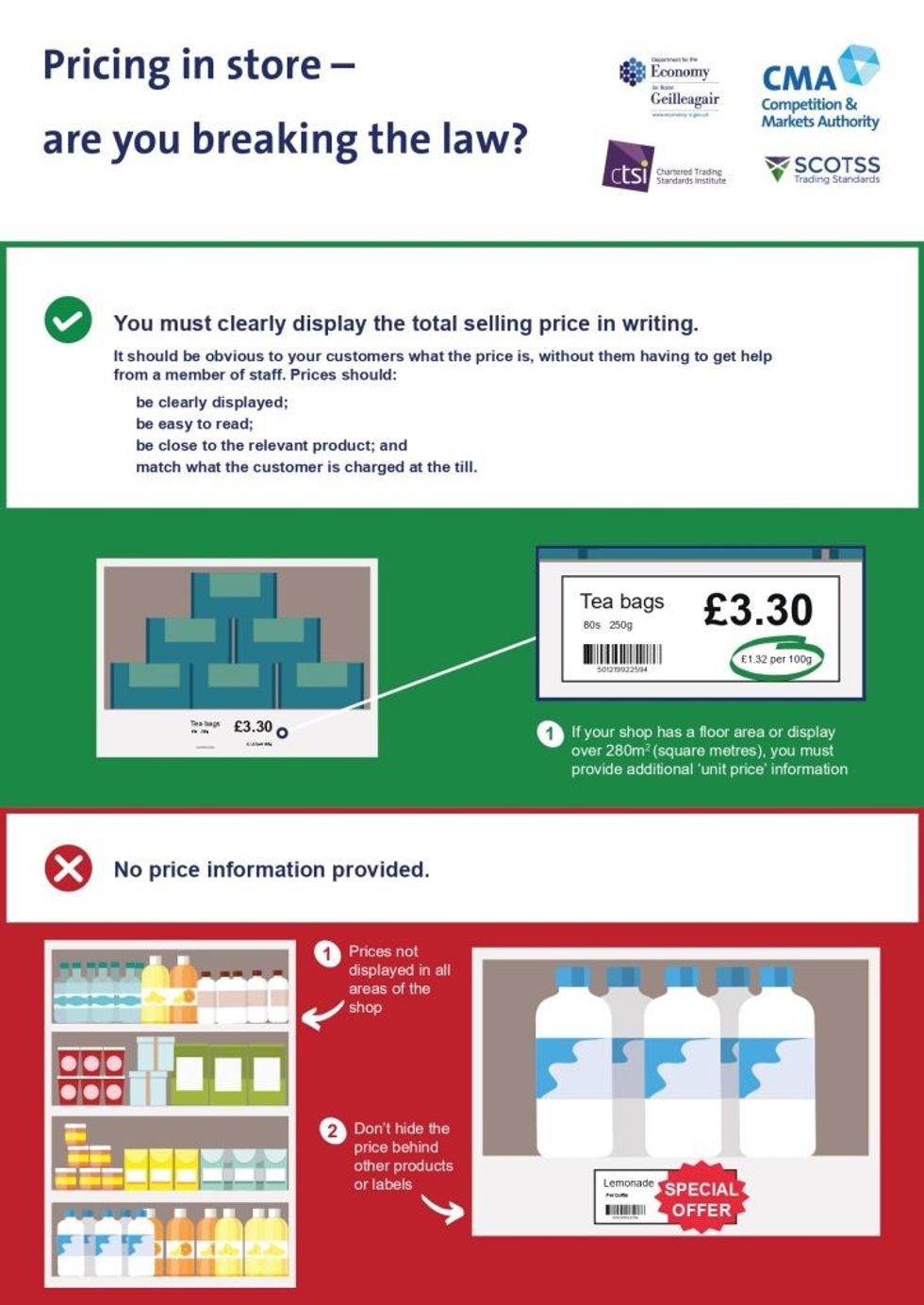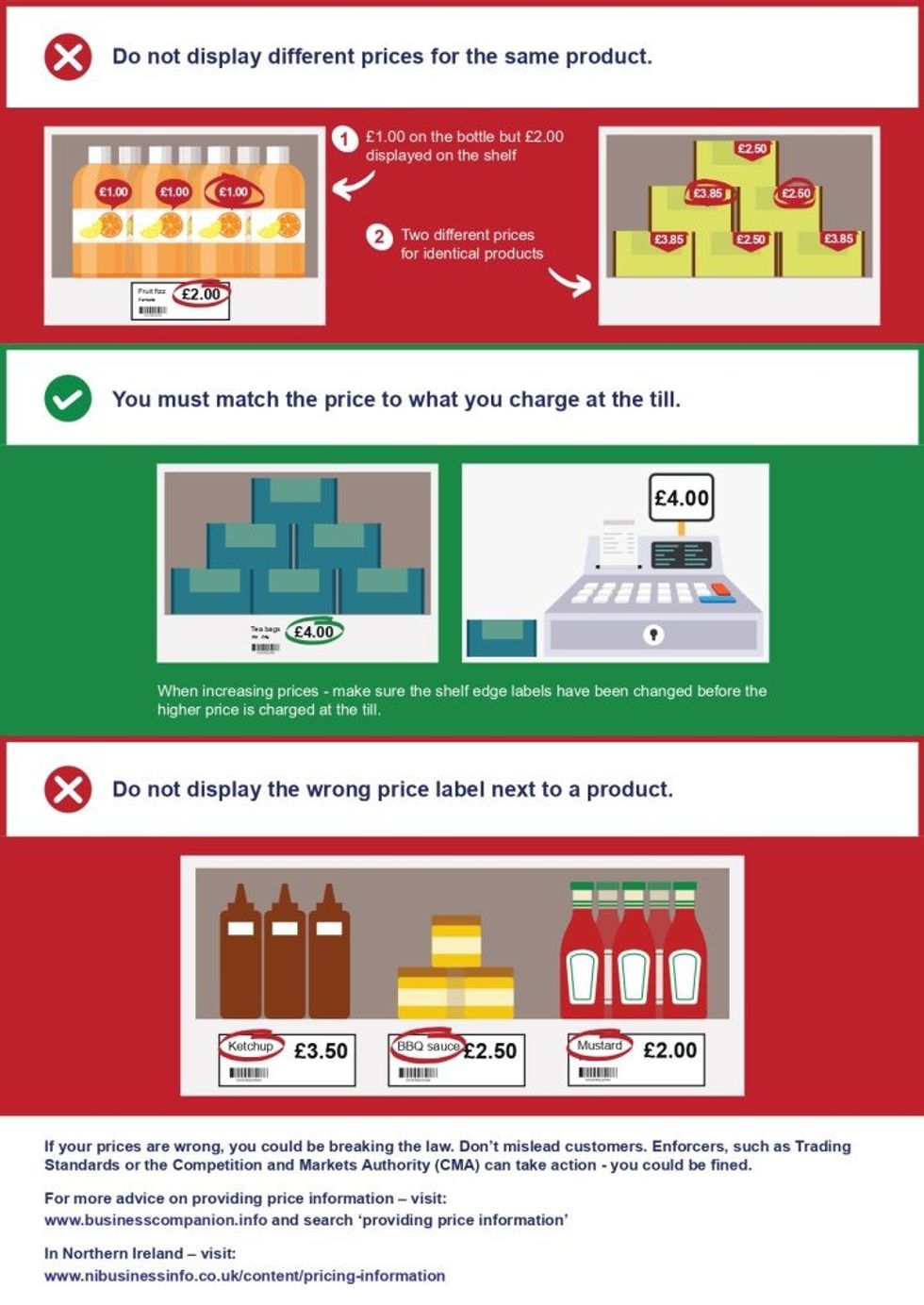The Competition and Markets Authority (CMA) has called on grocery stores to make accurate pricing a priority, as its review indicated that some independent and smaller grocery retailers are failing to display clear and accurate prices.
The competition watchdog has reviewed the way a range of grocery retailers displayed their prices in-store to assess whether they were clear, accurate and matched the price people were charged at the till.
The review looked at the price marking practices of 139 grocery stores in England and Wales, including supermarket chains, symbol convenience stores, variety stores and independent food stores.
The CMA conducted on-site inspections and looked at a sample of products – such as fresh fruit and vegetables and products on promotion. During inspections at some stores, the CMA found examples where the retailer was displaying inaccurate prices or failed to display prices at all for certain products.
Failing to provide clear and accurate pricing information for products on sale is a breach of consumer law, the regulator noted, adding that the findings were reinforced by similar work carried out by some regional and local Trading Standards teams across England and Wales, and previous work by the Society of Chief Officers of Trading Standards in Scotland (SCOTSS) and Northern Ireland Trading Standards (TSNI) across their respective nations.
“We know how frustrating it can be when you get to the till only to find the price doesn’t match what was advertised. While lots of grocery retailers – particularly supermarkets – are complying with pricing rules, this needs to consistently be the case across all types of stores,” George Lusty, interim executive director for consumer protection and markets at the CMA, said.
Overall, the majority of issues were found at independent food stores and symbol convenience stores. At least one pricing error was found when prices were checked at the till in over two thirds of symbol convenience stores (69 per cent) and over half of independent food stores (53 per cent). Variety stores (44 per cent) and supermarkets (43 per cent) fared better in comparison.
The most common types of issues seen were missing prices, conflicting prices (instances where prices indicated on products conflicted with those shown on shelf edge labels) and prices not being displayed sufficiently close to products.
There were also issues with prices not being clearly legible, the selling price being obscured, and multibuy promotion labels that didn’t specify the price of the items individually.
The percentage of pricing errors found at each type of store, of products checked at the till, were:
- Supermarkets: 4.2 per cent
- Symbol convenience stores: 14.4 per cent
- Variety stores: 5.6 per cent
- Independent food stores: 7.8 per cent
Overall, 60 per cent of the errors resulted in a higher price being charged at the till.
As a result of these findings, the CMA, in conjunction with Trading Standards, has published compliance materials aimed at helping grocery retailers understand what they need to do to comply with the law.
“It’s important that shoppers can make well-informed choices based on accurate information, especially at a time when lots of people are looking to save money. That’s why we are reminding businesses of the importance of complying with consumer law,” Lusty said.







